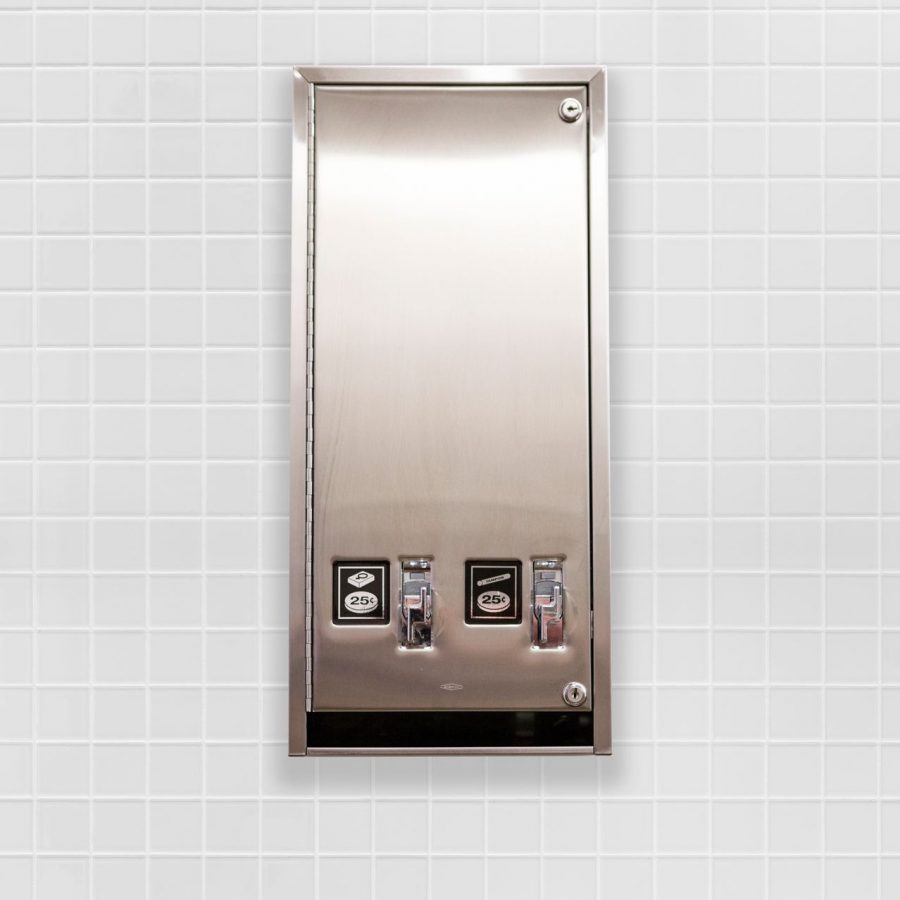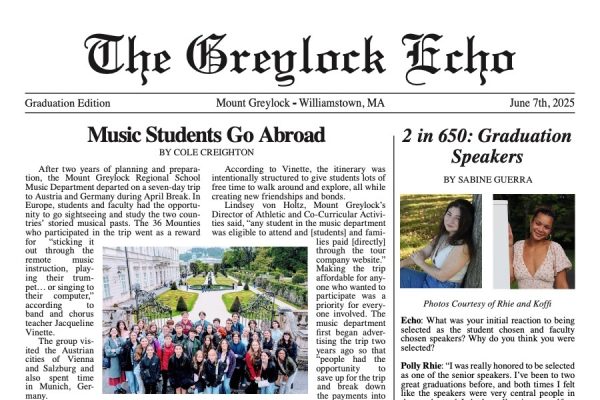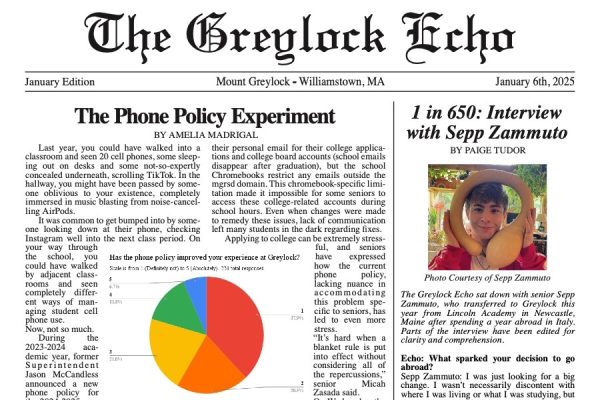Mount Greylock Provides Free Menstrual Hygiene Products in Bathrooms
On August 1st, the state of Massachusetts passed a bill stating “all elementary and secondary public schools in the Commonwealth serving students in any grade from grade six through grade twelve shall provide feminine hygiene products in the restrooms of such school building or buildings. Such products shall be provided at no charge to students.”
In the past week, Mt. Greylock has implemented this new law, and sanitary products are now available in both the toilet bathrooms and the toilet and urinal bathrooms.
Bills of this sort have already been passed in states such as New Hampshire and New York. While Massachusetts exempts these products from sales tax, students still had to buy them from their school. Now, schools must provide students with pads and tampons free of charge.
In the past, Mt. Greylock had tampon and pad dispensers in the toilets bathroom for 25 cents a product. Students could also go to the school nurse to receive free products.
School nurse Nicole Russel said, “Schools in many states, including ours, were determined to ensure that students had access to affordable feminine hygiene products”
Russel explained that many advocates for free products wanted to end the stigma surrounding menstruation, especially for those who can’t afford pads or tampons.
Availability of these products can also affect student’s work in school.
“ It not only makes it easier for girls to manage their menses and focus their attention on classwork, but it signals to young women that their needs matter and their menses is an important part of being healthy – all things that contribute to a better learning experience,” said Russel.
A school nurse in Vermont agreed that this free access “eliminates students having to worry about their menstruation in school without necessary sanitary products. This cuts down on school absences due to a student’s menstrual cycle and allows them less challenges to access their education.”
Even teachers at Greylock have noticed this shift. Russel said, “I had a teacher approach me to stay what a great idea it was to have dispensers in all the bathrooms. She said she used to have a few extra feminine products available to her students if they needed one. She went on to say that now students can grab one in the bathroom, and be back in class in five minutes. They no longer have to run to the nurse’s office, wait for her to take care of the sick students, and possibly miss the whole class.
Students also have had a positive reaction to this addition.“I have had many students state how much more convenient it was to have tampons and pads in the bathrooms,” said Russel. “One student made a comment that she and her friends used to be embarrassed to come to the nurse to ask for pads.”
Studies have shown that twenty percent of teenagers cannot afford menstrual hygiene products. When students lack the ability to get the products they need, it affects their schoolwork. They are more focused on the immediate issue of not having a pad or tampon rather than on their schoolwork. Now that students have access to these supplies, students with a period will be able to relax.







